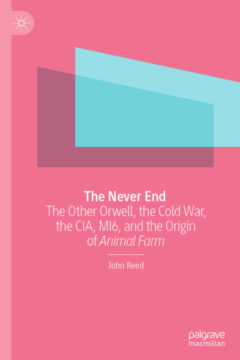by Akim Reinhardt
 The turn of the 21st century saw a burst of atheistic declarations and critiques in the United States and Great Britain, led by a small group of celebrity atheists including Philosopher Daniel Dennett, Biologist Richard Dawkins, and journalist Christopher Hitchens. I have always found this New Atheism, as the movement is often called, to be a mixed bag. It was long overdue, and many good (if obvious) points were made. However, there was also a fair bit of navel-gazing and even stupidity. And among some of the celebrity leaders, I believe, there was also a profound misunderstanding of religion, how it functions, and even its basic purposes.
The turn of the 21st century saw a burst of atheistic declarations and critiques in the United States and Great Britain, led by a small group of celebrity atheists including Philosopher Daniel Dennett, Biologist Richard Dawkins, and journalist Christopher Hitchens. I have always found this New Atheism, as the movement is often called, to be a mixed bag. It was long overdue, and many good (if obvious) points were made. However, there was also a fair bit of navel-gazing and even stupidity. And among some of the celebrity leaders, I believe, there was also a profound misunderstanding of religion, how it functions, and even its basic purposes.Below I identify what I see as two basic recurring problems in modern atheism. I then offer two approaches that I believe atheists should consider for understanding and relating to the religious.
Problem 1: Arrogance. Don’t be so sure of yourself. Even if you’re not laboring under a “God delusion,” you should still have the humility to recognize that you know next to nothing, and what few answers you might proffer aren’t anything anyone wants to hear. If humanism is to offer any benefits, it must begin with an acknowledgment of humanity’s vast ignorance and inability to learn much.
This sentiment will likely send some admirers of science into paroxysms. Surely, they protest, we’ve learned so much over the last century or two. Read more »

 Twenty years ago, John Reed made an unexpected discovery: “If Orwell esoterica wasn’t my foremost interest, I eventually realized that, in part, it was my calling.” In the aftermath of September 11, 2001, ideas that had been germinating suddenly coalesced, and in three weeks’ time Reed penned a parody of George Orwell’s Animal Farm. The memorable pig Snowball would return from exile, bringing capitalism with him—thus updating the Cold War allegory by fifty-some years and pulling the rug out from underneath it. At the time, Reed couldn’t have anticipated the great wave of vitriol and legal challenges headed his way—or the series of skewed public debates with the likes of Christopher Hitchens. Apparently, the world wasn’t ready for a take-down of its patron saint, or a sober look at Orwell’s (and Hitchens’s) strategic turn to the right.
Twenty years ago, John Reed made an unexpected discovery: “If Orwell esoterica wasn’t my foremost interest, I eventually realized that, in part, it was my calling.” In the aftermath of September 11, 2001, ideas that had been germinating suddenly coalesced, and in three weeks’ time Reed penned a parody of George Orwell’s Animal Farm. The memorable pig Snowball would return from exile, bringing capitalism with him—thus updating the Cold War allegory by fifty-some years and pulling the rug out from underneath it. At the time, Reed couldn’t have anticipated the great wave of vitriol and legal challenges headed his way—or the series of skewed public debates with the likes of Christopher Hitchens. Apparently, the world wasn’t ready for a take-down of its patron saint, or a sober look at Orwell’s (and Hitchens’s) strategic turn to the right.